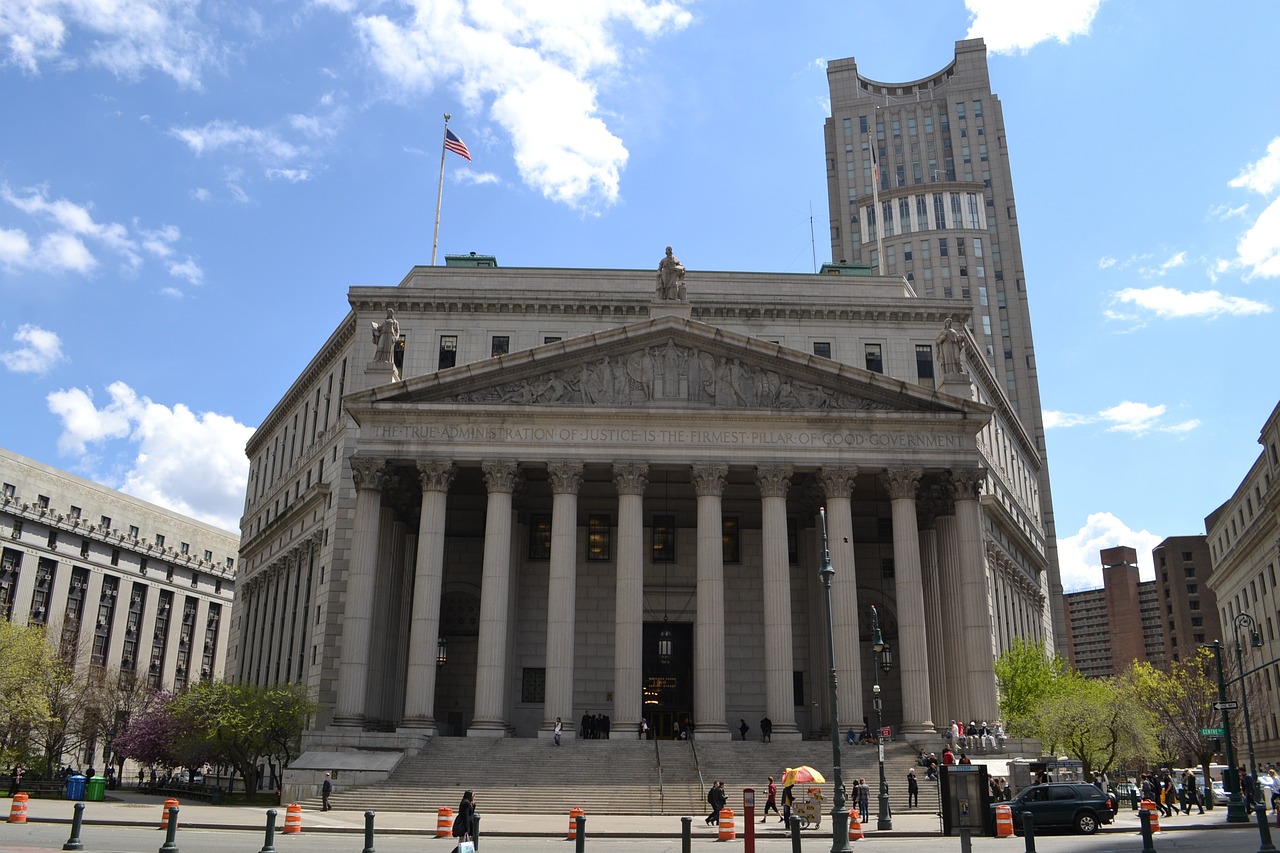Are you in need of a knowledgeable and experienced commercial real estate lawyer in Orem, Utah? Look no further than Jeremy Eveland. With his expertise in the field, Jeremy can provide you with comprehensive and exhaustive information about commercial real estate law. Whether you are buying or selling commercial property, negotiating leases, or dealing with any legal complexities in the commercial real estate industry, Jeremy is your go-to lawyer. His dedication to his clients and his in-depth understanding of the legal intricacies surrounding commercial real estate will ensure that your interests are protected. Don’t hesitate to reach out to Jeremy Eveland for a consultation and let him guide you through the complexities of commercial real estate law in Orem, Utah.
Overview of Commercial Real Estate Law
Commercial real estate law refers to the legal regulations and principles that govern the buying, selling, leasing, and development of commercial properties. It is a specialized area of law that deals with various aspects of commercial real estate transactions and disputes. Understanding commercial real estate law is crucial for both property owners and businesses looking to invest or operate in the commercial real estate market.
Definition of Commercial Real Estate Law
Commercial real estate law encompasses a broad range of legal issues related to commercial properties, which include office buildings, retail spaces, industrial facilities, and multi-unit residential complexes. It involves contractual agreements, property transactions, zoning and land use regulations, environmental compliance, and resolving disputes that may arise in the commercial real estate context.

Importance of Hiring a Commercial Real Estate Lawyer
Navigating the complexities of commercial real estate transactions and legal requirements can be challenging without the assistance of a knowledgeable professional. Hiring a commercial real estate lawyer is essential to ensure legal compliance, protect your interests, and minimize risks and liabilities. Their expertise and guidance can help you navigate the legal intricacies associated with commercial real estate transactions.
Role of a Commercial Real Estate Lawyer
A commercial real estate lawyer plays a crucial role throughout various stages of a commercial real estate transaction. They provide valuable guidance, advice, and legal representation to clients involved in commercial real estate matters. Their responsibilities include negotiating and drafting legal documents, conducting due diligence, resolving property disputes, and ensuring compliance with local and federal regulations.

Specialized Expertise in Commercial Real Estate
Commercial real estate lawyers possess specialized knowledge and expertise in various areas related to commercial properties. Some of the key areas where their expertise proves invaluable are discussed below:
Understanding zoning and land use regulations
One of the primary areas of expertise for commercial real estate lawyers is understanding and navigating the complexities of zoning and land use regulations. These regulations govern how properties can be used in specific areas. The lawyer will ensure that the client’s intended use of the property complies with local zoning and land use requirements, avoiding costly violations and penalties.
Negotiating and drafting commercial lease agreements
Commercial lease agreements are complex legal documents that govern the relationship between landlords and tenants. A commercial real estate lawyer can negotiate lease terms that protect your interests and draft agreements that clearly outline the rights and responsibilities of both parties. They can also assist in resolving disputes that may arise during the lease term.
Assistance in property purchase and sale transactions
When buying or selling commercial properties, it is vital to have expert legal guidance. A commercial real estate lawyer can assist with the due diligence process, including reviewing property titles, identifying any existing liens or encumbrances, and verifying the property’s legal status. They will also negotiate and draft purchase/sale agreements and facilitate the smooth closing of the transaction.
Services Offered by a Commercial Real Estate Lawyer
Commercial real estate lawyers offer a wide range of services to clients involved in commercial real estate transactions or facing property-related legal issues. Some of the key services they provide include:
Legal due diligence
Commercial real estate transactions typically involve conducting due diligence to assess the legal and financial aspects of the property. A commercial real estate lawyer can perform a thorough review of documents and records related to the property, including title deeds, leases, contracts, and environmental reports. This ensures that the client is aware of any potential issues or risks associated with the property.
Title examination and insurance
Title examination is a critical process in commercial real estate transactions to ensure that the property’s title is free of any defects or claims. A commercial real estate lawyer can conduct a comprehensive title search, examine the title history, and resolve any potential issues, such as liens or easements. They can also help clients obtain title insurance, which protects against future claims to the property’s ownership.
Reviewing and negotiating contracts
Contracts play a vital role in commercial real estate transactions. A commercial real estate lawyer can review and negotiate various contracts, including purchase/sale agreements, lease agreements, financing documents, and construction contracts. They will ensure that the terms and conditions of these contracts are favorable and protect the client’s interests.
Resolution of property disputes
Disputes can arise in commercial real estate, and a lawyer specializing in this area can assist in resolving these conflicts. Whether it’s a breach of contract, ownership disputes, or zoning conflicts, a commercial real estate lawyer can provide legal representation and guide their clients through alternative dispute resolution methods or, if necessary, advocate for them in court.
Environmental compliance
Commercial real estate development and operations often involve environmental regulations and compliance. A commercial real estate lawyer can help clients understand and comply with environmental laws, obtain necessary permits and approvals, and address potential environmental liabilities or contamination issues.
Importance of Hiring a Local Commercial Real Estate Lawyer
When dealing with commercial real estate matters, hiring a local commercial real estate lawyer comes with several advantages. Their in-depth knowledge of local real estate laws and familiarity with the local market conditions can greatly benefit clients. Some key reasons to hire a local commercial real estate lawyer are:
In-depth knowledge of local real estate laws
Real estate laws can vary from state to state and even from one locality to another. A local commercial real estate lawyer will have a comprehensive understanding of the specific laws and regulations applicable to your commercial property. This knowledge ensures compliance with local legal requirements and avoids any potential legal pitfalls.
Familiarity with local market conditions
Local commercial real estate lawyers have an intimate understanding of the local market conditions, trends, and practices. They can provide valuable insights into property values, leasing rates, and market dynamics. This knowledge can assist clients in making informed decisions and negotiating favorable terms in their commercial real estate transactions.
Established relationships with local authorities
Local commercial real estate lawyers often have established relationships with local authorities, including municipal officials, planning departments, and zoning boards. These relationships can prove invaluable when dealing with permitting, variances, or other regulatory matters. Having a lawyer who can navigate the local bureaucracy can help streamline processes and expedite the resolution of any issues that may arise.
Key Considerations When Choosing a Commercial Real Estate Lawyer
Choosing the right commercial real estate lawyer is essential to ensuring a smooth transaction and effectively addressing any legal issues that may arise. When selecting a commercial real estate lawyer, consider the following key factors:
Relevant experience and expertise
It is crucial to choose a lawyer with specific experience and expertise in commercial real estate law. Look for professionals who have a proven track record of successfully handling similar cases or transactions. A lawyer with experience in the specific area of commercial real estate law relevant to your needs can provide valuable insights and guidance.
Track record of successful cases
A lawyer’s track record of successful cases demonstrates their competence and ability to navigate complex commercial real estate matters. Look for reviews, testimonials, or references from previous clients to gauge their reputation and level of client satisfaction. A lawyer with a proven history of achieving favorable outcomes for their clients is more likely to deliver positive results.
Availability and accessibility
Timeliness and responsiveness are crucial when dealing with commercial real estate transactions or disputes. Ensure that the lawyer you choose is accessible and readily available for consultations, communications, and updates. Clear communication channels and prompt responses are essential for a smooth and efficient working relationship.
Transparent fee structure
Discuss the lawyer’s fee structure upfront to ensure transparency and avoid any surprises. Understand how they charge for their services, whether it’s an hourly rate or a flat fee for specific tasks. Clear communication about fees and billing practices will help manage expectations and prevent any conflicts regarding costs down the line.

Steps Involved in a Commercial Real Estate Transaction
Commercial real estate transactions involve several stages, each requiring careful attention and legal expertise. The following are the typical steps involved in a commercial real estate transaction:
Initial consultation and case assessment
The process begins with an initial consultation between the client and the commercial real estate lawyer. During this meeting, the lawyer will assess the client’s needs and objectives, review any relevant documents or information, and provide an overview of the legal process involved in the transaction.
Legal due diligence and property evaluation
The next step is to conduct thorough due diligence to ensure that the property meets the client’s requirements and expectations. The commercial real estate lawyer will review relevant documents, perform title searches, assess zoning and land-use compliance, and identify any potential issues or risks associated with the property.
Drafting and negotiation of purchase/sale agreements
Once the due diligence is complete, the lawyer will draft the purchase/sale agreements. These agreements outline the terms and conditions of the transaction, including the purchase price, warranties, any contingencies, and closing dates. The lawyer will negotiate the terms with the opposing party’s lawyer and ensure that their client’s interests are protected.
Closing the transaction
The final step in a commercial real estate transaction is the closing. At this stage, all necessary documents are signed, funds are transferred, and ownership is officially transferred from the seller to the buyer. The commercial real estate lawyer will oversee the closing process to ensure that all legal requirements are met, and the transaction is completed smoothly.
Common Issues in Commercial Real Estate
Commercial real estate transactions can be complex, and various issues can arise during the process. Understanding these common issues is crucial for both buyers and sellers. Some of the typical issues encountered in commercial real estate include:
Breach of contract
Contractual disputes can arise when one party fails to fulfill their obligations under the agreement. A commercial real estate lawyer can help resolve breaches of contract and guide their clients through negotiations or legal proceedings to seek appropriate remedies.
Unforeseen environmental liabilities
Commercial properties may have undisclosed environmental issues, such as contamination or hazardous materials. Identifying and addressing these liabilities is crucial for both buyers and sellers. A commercial real estate lawyer can conduct thorough due diligence to assess potential environmental risks and help clients navigate environmental compliance.
Title defects and ownership disputes
Title defects, such as undisclosed liens, encroachments, or competing claims to ownership, can jeopardize a commercial real estate transaction. A commercial real estate lawyer can perform extensive title searches, resolve any title defects, and resolve ownership disputes if they arise.
Zoning and land-use conflicts
Zoning and land-use regulations can impact the usability and value of commercial properties. Zoning conflicts may arise when a property’s intended use does not comply with local zoning ordinances. A commercial real estate lawyer can navigate these conflicts, pursue variances or rezoning requests, and ensure compliance with applicable regulations.
Financing and mortgage-related challenges
Securing financing for commercial real estate transactions can be complex. Lenders may require extensive documentation, property appraisals, and financial statements. A commercial real estate lawyer can assist in preparing the necessary legal and financial documents and guide clients through the financing process.
Benefits of Consulting a Commercial Real Estate Lawyer
Consulting a commercial real estate lawyer offers numerous benefits to individuals and businesses involved in commercial real estate transactions. Some of the key benefits include:
Minimizing legal risks and liabilities
Commercial real estate transactions involve significant financial investments and legal obligations. A commercial real estate lawyer can identify and mitigate potential legal risks and liabilities, ensuring that the client is protected throughout the transaction. They can advise on compliance with legal requirements, negotiate favorable terms, and oversee the transaction to minimize potential legal challenges.
Navigating complex legal procedures
Commercial real estate transactions involve various legal procedures, including due diligence, contract negotiation, and closing. A commercial real estate lawyer has the knowledge and experience to navigate these procedures effectively, ensuring that all legal requirements are met and the transaction progresses smoothly.
Negotiating favorable terms and conditions
Negotiating favorable terms in a commercial real estate transaction is vital to protect the client’s interests. A commercial real estate lawyer can negotiate on behalf of their clients, leveraging their knowledge of real estate laws and market conditions to secure the most advantageous terms possible.
Protecting clients’ interests
A commercial real estate lawyer’s primary responsibility is to protect their clients’ interests. They act as advocates, ensuring that the client’s rights are safeguarded throughout the transaction. By reviewing contracts, conducting due diligence, and resolving disputes, commercial real estate lawyers work to protect their client’s financial investments and legal rights.
Real Estate Litigation in Commercial Settings
In some cases, disputes or conflicts in commercial real estate cannot be resolved through negotiations or alternative dispute resolution methods. Real estate litigation may become necessary to resolve complex or contentious disputes. In commercial settings, real estate litigation can involve various issues, such as:
Types of disputes requiring litigation
Real estate litigation in commercial settings can encompass a wide range of issues, including breaches of contract, lease disputes, boundary disputes, property damage claims, construction defects, and enforcement of property rights. These disputes often involve substantial financial stakes and complex legal arguments.
Alternative dispute resolution methods
Before resorting to litigation, commercial real estate lawyers often explore alternative dispute resolution methods, such as mediation or arbitration. These methods aim to resolve disputes outside of court, with the assistance of a neutral third party. They can be quicker, less expensive, and offer more flexibility compared to traditional litigation.
Importance of skilled advocacy in court
When disputes cannot be resolved through alternative dispute resolution, skilled advocacy in court becomes crucial. A commercial real estate lawyer with litigation experience can represent clients in court, presenting their arguments and evidence effectively. Their understanding of the law and the legal process can greatly enhance the chances of a favorable outcome for their clients.
Tips for Successful Commercial Real Estate Transactions
Successful commercial real estate transactions require careful planning, thorough evaluation, and attention to detail. Consider the following tips to ensure a successful commercial real estate transaction:
Thorough property inspection and due diligence
Conducting a thorough property inspection and due diligence is essential to identify any potential issues or risks associated with the property. Engage professionals, such as building inspectors, surveyors, and environmental consultants, to assess the physical condition, boundary lines, and regulatory compliance of the property.
Clear understanding of contractual terms
Commercial real estate transactions involve complex contractual agreements. It is crucial to have a clear understanding of all the terms and conditions before signing any contract. Consult with a commercial real estate lawyer to review and explain the contractual terms, ensuring that your interests are protected.
Secure financing arrangements
Determine your financing needs early in the process and secure financing arrangements well in advance. Engage with lenders, mortgage brokers, or financial institutions to explore financing options, ensuring that you have the necessary funds to complete the transaction.
Consideration of tax implications
Commercial real estate transactions can have significant tax implications. Consult with a tax professional or a commercial real estate lawyer to understand the potential tax responsibilities, such as property taxes, capital gains taxes, or sales taxes. Understanding these implications beforehand can help plan and budget effectively.
Awareness of local regulations and permits
Compliance with local regulations and obtaining the necessary permits is essential in commercial real estate transactions. Familiarize yourself with the local zoning and land-use regulations, building codes, and permit requirements. Engage with a commercial real estate lawyer who understands the local legal landscape to ensure compliance and avoid any potential legal or regulatory issues.
In conclusion, commercial real estate transactions involve intricate legal processes and potential risks. Hiring a knowledgeable and experienced commercial real estate lawyer is essential to navigate these complexities successfully. A commercial real estate lawyer can provide a wide range of services, from conducting due diligence to resolving disputes, to ensure a smooth and legally compliant transaction. With their specialized expertise, a local commercial real estate lawyer can offer valuable insights and guide clients through the complexities of local real estate laws and market conditions. By considering the key factors when choosing a lawyer and following best practices, individuals and businesses can increase the likelihood of a successful and favorable commercial real estate transaction.









